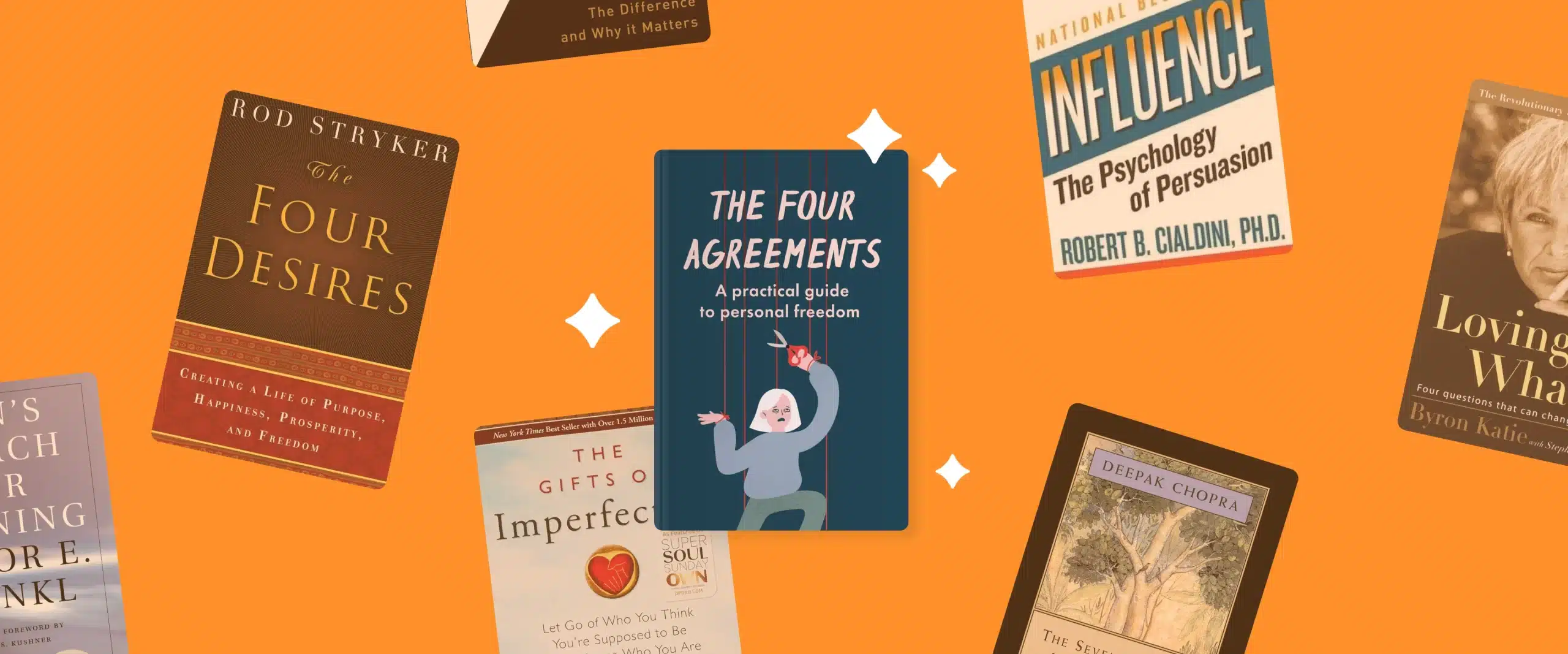Intelligence isn’t just about IQ or talent. It’s a skill. It can be improved with the right tools and resources. Reading books that challenge you is a great way to boost your mind. They can expand your knowledge and spark your creativity. This article explores the best books to boost your smarts. It will help you enhance your memory, improve critical thinking. It boost your creativity.
Top Best Books to Increase Intelligence
- “Thinking, Fast and Slow” by Daniel Kahneman
- “Grit: The Power of Passion and Perseverance” by Angela Duckworth
- “The Art of Thinking Clearly” by Rolf Dobelli
- “Make It Stick: The Science of Successful Learning” by Peter C. Brown, Henry L. Roediger III, and Mark A. McDaniel
- “Sapiens: A Brief History of Humankind” by Yuval Noah Harari
- “Mindset: The New Psychology of Success” by Carol S. Dweck
- “The Brain That Changes Itself” by Norman Doidge
- “How to Read a Book” by Mortimer J. Adler and Charles Van Doren
- “Deep Work: Rules for Focused Success in a Distracted World” by Cal Newport
- “Range: Why Generalists Triumph in a Specialized World” by David Epstein
Detailed Descriptions of the Best Books to Increase Intelligence
“Thinking, Fast and Slow” by Daniel Kahneman
- Overview: A Nobel Prize-winning psychologist wrote this book. It explores two systems of thought: the fast, intuitive one and the slower, deliberate one. For those aiming to enhance decision-making and critical thinking, this is one of the Best Books for Professional Development, offering insights into how our minds process information and make choices.
- Why It’s Great: Kahneman shows how these systems shape decisions. He explains how to avoid cognitive biases.
- Key Takeaways: Recognizing and managing these thoughts can boost critical thinking. It is problem-solving skills.
“Grit: The Power of Passion and Perseverance” by Angela Duckworth
- Overview: Duckworth examines why talent isn’t enough to succeed. Persistence and passion matter more.
- Why It’s Great: The book gives strategies to build resilience. It’s a key part of emotional intelligence.
- Key Takeaways: Grit helps you tackle challenges. It makes you tougher.
“The Art of Thinking Clearly” by Rolf Dobelli
- Overview: This book identifies common thinking errors and biases that hinder smart decision-making.
- Why It’s Great: Dobelli presents 99 mental models simply. They’re practical for daily use.
- Key Takeaways: Avoiding these pitfalls can significantly improve your logical reasoning and judgment.
“Make It Stick: The Science of Successful Learning” by Peter C. Brown, Henry L. Roediger III, and Mark A. McDaniel
- Overview: This book explores how the brain retains information. It gives evidence-based strategies for effective learning.
- Why It’s Great: It’s a must-read for students and pros seeking better learning techniques.
- Key Takeaways: Using spaced repetition and active recall can boost memory and understanding.
“Sapiens: A Brief History of Humankind” by Yuval Noah Harari
- Overview: Harari examines the evolution of human societies, from hunter-gatherers to modern civilizations.
- Why It’s Great: This book expands your view on human behavior, culture, and history. It sparks curiosity.
- Key Takeaways: A bigger view helps you think critically about the world and your place in it.
“Mindset: The New Psychology of Success” by Carol S. Dweck
- Overview: Dweck’s “growth mindset” is the idea that people can develop their intelligence and abilities through effort and persistence.
- Why It’s Great: It’s a transformative read for anyone who feels stuck or wants to improve their potential.
- Key Takeaways: A growth mindset can boost success and fulfillment.
“The Brain That Changes Itself” by Norman Doidge
- Overview: This book explores the brain’s ability to rewire itself, even in adulthood.
- Why It’s Great: It shows that intelligence isn’t fixed. It highlights new research in neuroplasticity.
- Key Takeaways: Mental and physical challenges can boost brain health and cognition.
“How to Read a Book” by Mortimer J. Adler and Charles Van Doren
- Overview: This classic guide to reading comprehension teaches how to get the most from any text.
- Why It’s Great: It’s an essential read for anyone looking to improve their ability to learn from books.
- Key Takeaways: Advanced reading skills can unlock a deeper understanding and retention of complex material.
“Deep Work: Rules for Focused Success in a Distracted World” by Cal Newport
- Overview: Newport argues that, in a distracting world, deep, focused work is vital.
- Why It’s Great: It gives strategies to boost focus and productivity. They are key to intellectual growth.
- Key Takeaways: Deep focus lets you achieve more in less time. It also strengthens your mental discipline.
“Range: Why Generalists Triumph in a Specialized World” by David Epstein
- Overview: Epstein argues that generalists are more creative and successful than specialists.
- Why It’s Great: The book has examples and research. They show the value of diverse skills and experiences.
- Key Takeaways: Broadening your knowledge base enhances problem-solving abilities and adaptability.
Tips for Choosing the Right Book
- Assess Your Goals: Are you looking to improve memory, creativity, or logical thinking? Choose books that align with your goals.
- Start with Accessible Reads: If you’re new to these topics, read “Mindset” or “The Art of Thinking Clearly.””
- Diversify Your Reading: Read books on psychology, learning, and philosophy. This will give you a well-rounded view of intelligence.
- Apply What You Learn: Implement the strategies and insights from these books in your daily life for maximum impact.
FAQs About Books to Increase Intelligence
Can reading books really make you smarter?
Yes, reading stimulates the brain and improves critical thinking. It also boosts vocabulary. All of this makes you smarter.
Which book should I start with?
Beginners might enjoy “Thinking, Fast and Slow” by Daniel Kahneman or “Mindset” by Carol S. Dweck. They are accessible yet impactful.
Are these books suitable for all age groups?
Most of these books are for adults. But, some ideas can suit younger readers.
How can I retain what I read?
Use note-taking, summarizing, and spaced repetition to boost memory.
Conclusion
Increasing your intelligence is a lifelong journey. It requires curiosity, dedication, and the right tools. The above books are great for boosting intelligence. They cover critical thinking, creativity, and emotional resilience. Their knowledge and strategies can unlock your potential. You can achieve greater success in life. Start with one book, apply its lessons, and watch your intellectual abilities grow!

